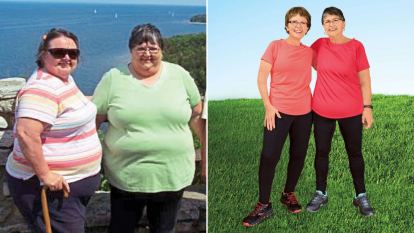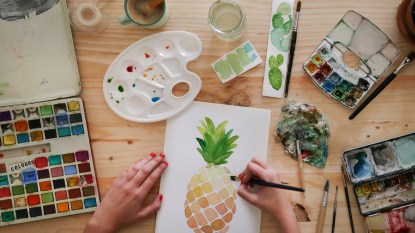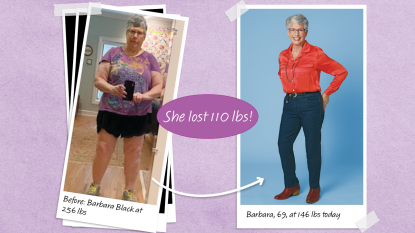How to Strengthen Your Long-Term Relationship with Gratitude — According to an Expert

When you’ve been with someone for a while, things can get a little tricky. Relationships change over time, and keeping the spark alive might feel like a task you don’t quite know how to navigate.
Whether you’re craving more love or attention from your partner or are looking to revive your marriage by putting your own best foot forward, experts seem to agree that gratitude plays an integral part in healthy relationships — especially as time goes along. But real gratitude, in practice, encompasses much more than just saying “thank you.” With this in mind, we spoke to Alice Boyes, PhD, author of The Anxiety Toolkit ($12.23, Amazon) and The Healthy Mind Toolkit ($10.89, Amazon) about how to show and receive gratitude in a relationship so that your love can last a lifetime. Check out what she had to say, below.
How can gratitude strengthen a bond?
Dr. Boyes emphasizes that the feelings we experience as a result of our relationship dictate how close we feel to our partner. “Relationships largely operate on overall sentiment,” she explains. “When we feel generally positive, we overlook little (and sometimes big!) annoyances. When we feel negative overall, everything bothers us.” Sound familiar?
“Having gratitude can keep the general sentiment/climate of the relationship positive,” she continues. “It can help put you in a mental place of cooperating and working together in life. When there is a lack of gratitude, there tends to be a sense of resentment and ‘why bother’ when it comes to cooperating, helping and supporting each other, and putting in effort. Gratitude is a force multiplier for everything else.” Displays of gratitude can remind your partner that you are glad he or she is there in the first place, making them feel more valued.
How can you feel more grateful?
Some of us don’t wake up and naturally feel grateful for the good things in our lives, and getting to this state can feel like a struggle. If this sounds like you, Dr. Boyes says it’s best to consciously pay attention to and focus your thoughts on the good. “Try not to be blind to all the small ways you support each other, balance each other’s personalities etc.,” she says. “It can also be helpful to stay aware of the benefits of a long relationship in general, like knowing each other really well and having lots of shared experiences and shared life history. Whenever you find yourself minimizing the work your spouse/partner does, try to catch that.”
After all, since many of our thoughts are repeated on a day-to-day basis, changing your mind from “that was nothing” to “wow, I really appreciate how him doing X makes my life easier,” can make a world of difference in the way you perceive the relationship.
What if you don’t feel like your partner is grateful for you?
Many of us may also feel like we are unseen or unappreciated by our partners, and this can breed resentment. Dr. Boyes insists that in order to change this dynamic, you should focus on making some personal adjustments. “It’s pretty hard to change someone else,” she says. “I would focus on standing up for yourself in ways that make you feel better, regardless of the impact it has on the other person’s behavior.”
She says it can be useful to approach it from the perspective that it’s normal to minimize work done by others, rather than it being some indictment on you. “It’s a normal cognitive bias many of us fall into automatically, and they need to consciously correct it,” she explains. In other words, some habits, like overlooking your partners’ hard work, are pretty common (you’ve done this yourself, haven’t you?), so allow some room for imperfection. Being more grateful for the things your partner does for you could help ignite the flame within them, too!
What practices can enhance gratitude in a relationship?
Being and feeling grateful is about more than saying the words. Instead, having practices in place to tune our mind to gratitude rather than resentment and frustration can completely change the dynamic between ourselves and our partners.
As for practices, Dr. Boyes recommends, “taking on shared projects, especially if they are new to both of you, can enhance closeness and remind you of each other’s respective strengths.”
She also reiterates the common sentiment that absence makes the heart grow fonder: “If you’re inclined, having some time apart (e.g. one person taking a trip without the other) can help you realize all the work the other person does or all the support they give. Sometimes just imagining not having the other person can be a good prompt for gratitude, even if it also makes you feel a bit sad to do that.” Girls trip to Fiji, anyone?
So if you’ve been with one person for an extended period of time, kudos to you! But it never hurts to take some professional advice about keeping love alive. According to the experts, feeling grateful isn’t something that happens on its own, especially as the years go along. Rather, it’s something we must consciously and continuously work on for our own happiness and the happiness of those we love.
More From Woman’s World
89-Year-Old War Vet Shares Simple Advice Behind His 66-Year Marriage













